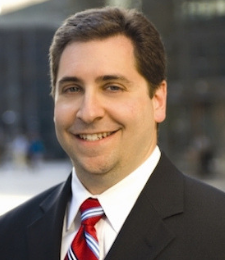I’m thrilled to announce that Bedard Law Group is the new sponsor for the Compliance Digest. Bedard Law Group, P.C. – Compliance Support – Defense Litigation – Nationwide Complaint Management – Turnkey Speech Analytics. And Our New BLG360 Program – Your Low Monthly Retainer Compliance Solution. Visit www.bedardlawgroup.com, email John H. Bedard, Jr., or call (678) 253-1871.

Every week, AccountsRecovery.net brings you the most important news in the industry. But, with compliance-related articles, context is king. That’s why the brightest and most knowledgable compliance experts are sought to offer their perspectives and insights into the most important news of the day. Read on to hear what the experts have to say this week.
House Unanimously Passes Bill to Amend FDCPA to Provide More Protections to Servicemembers
The House of Representatives yesterday unanimously passed a bill that would amend the Fair Debt Collection Practices Act to provide more protection for members of the Armed Forces. More details here.

WHAT THIS MEANS, FROM DAVID SCHULTZ OF HINSHAW & CULBERTSON: This past week the U.S. House of Representatives passed an amendment to the FDCPA providing additional protections for servicemembers and those who were released from duty in the past year. History has shown that it is hard to amend the FDCPA so this is a unique circumstance. Perhaps more impressive is that the House vote was 355-0. The bill, H.R. 5003, is now subject to certain government review. It then must go through the legislative process in the Senate and eventually, if passed, it will go to the President for further review. It thus is too early to determine if the bill will become law. The proposal has two essentially identical amendments to 1692c (dealing with communications) and 1692f (dealing with unfair and unconscionable acts). It prohibits threatening to have a covered member: (1) reduced in rank, or (2) lose a security clearance, or (3) be prosecuted per the Uniform Code of Military Justice.
THE COMPLIANCE DIGEST IS SPONSORED BY:

Judge Recommends Sanctions Against Plaintiffs in FDCPA Case
A Magistrate Judge in New York has filed a report recommending that a District Court judge allow the plaintiffs in a Fair Debt Collection Practices Act class-action suit to file a fourth amended complaint, even though discovery and the time to amend pleadings has closed, while also recommending that the defendants be granted sanctions to cover attorneys fees and costs. More details here.

WHAT THIS MEANS, FROM AYLIX K. JENSEN OF MOSS & BARNETT: In this report, the Magistrate Judge recommends an award of sanctions for defendants to pay attorneys’ fees and costs incurred in connection with plaintiffs’ non-compliant third amended complaint. In recommending an award of sanctions, the Magistrate Judge emphasizes that “it is somewhat lost on the plaintiffs that their failure to comply with the Court’s Orders was serious enough for the Court to take the drastic action of striking the [third amended complaint].” This report and recommendation serves as a cautionary tale about rules and orders, and the consequences of failing to follow them.
Fifth Circuit Rules CFPB Leadership Structure is Constitutional
While the Supreme Court was hearing arguments yesterday about whether the leadership structure of the Consumer Financial Protection Bureau was constitutional or not, the Fifth Circuit Court of Appeals issued its own ruling on the topic, following other Appeals Courts in determining that there is nothing wrong with allowing the director of the agency to only be fired for cause. More details here.

WHAT THIS MEANS, FROM STEFANIE JACKMAN OF BALLARD SPAHR: This appears to reflect a desire by the Fifth Circuit to join others and be heard on the issue of the constitutionality of the CFPB’s structure. It also may have felt compelled to do so given the positions of the various parties in Seila Law. But since oral arguments already took place in Seila Law and the Supreme Court’s decision appears to be imminent in the coming months, the influence of this decision strikes me as likely very limited in its impact and reach at this point.
Doctor to Pay $100k Fine For HIPAA Violations
A physician has agreed to pay $100,000 to settle a potential violation of the Health Insurance Portability and Accountability Act (HIPAA) with the Office of Civil Rights (OCR) in the Department of Health and Human Services because a business associate of the physician’s electronic health records company was blocking access to electronic protected health information until the practice paid the associate $50,000. More details here.

WHAT THIS MEANS, FROM LESLIE BENDER OF BCA FINANCIAL SERVICES: In a bizarre turn of events an allegedly unpaid vendor’s use and disclosure of a physicians’ patients’ protected health information yielded the year’s first major HIPAA Security enforcement action. The physician, Dr. Porter, who has been ordered to pay fines of $100,000 and take extensive corrective action has a gastroenterological practice servicing roughly 3000 Utah patients annually. According to the enforcement action Dr. Porter filed a breach report when his electronic health records vendor refused to return patients’ records to him. The vendor alleges he withheld the information because Dr. Porter owed him $50,000. Upon investigation of the facts and circumstances the U.S. Department of Health and Human Services discovered that the physician not only had a vendor management program that fell short of HIPAA’s requirements, but Dr. Porter had allegedly failed to do even the most basic HIPAA security compliance: an absence of a risk assessment and an absence of any reasonable documented compliance program.
Here are some take-aways from this new enforcement action:
- no covered entity is to big or small to take the time to safeguard the integrity, availability and confidentiality of patients’ records;
- assure all vendors have HIPAA compliant business associate agreements in place;
- periodically/regularly conduct risk assessments related to privacy and data security; and
- craft a documented HIPAA compliance program including policies, procedures and employee training and awareness programs.
Ohio AG Announces Plan to Tackle Robocalls
The attorney general of Ohio has announced the creation of a Robocall Enforcement Unit within the state’s Consumer Protection Section, as well as the launch of a tool aimed at making it easier for individuals to report robocalls to the state. More details here.

WHAT THIS MEANS, FROM HELEN MAC MURRAY OF MAC MURRAY & SHUSTER: As part of his attack on robocalls, Ohio AG Yost is advising people “Just Don’t Answer.” Unfortunately, that’s not the answer. Many legitimate industries are already suffering from their calls being wrongly marked as spam or worse. Keeping people afraid of their phones is akin to what some see as the overreaction to the corona virus. Fear has a real impact on jobs and our economy and must be kept in mind. Notwithstanding all the press, state AG robocall enforcement actions are far and few between. That is mainly because the crooks really robodialing are far beyond the US borders. As such, US businesses using online opt-in leads need to be hypervigilant about vetting these leads. Unfortunately, that’s where regulators are focusing because they’re the ones they can reach.
ACA, Other Groups, Meet With FCC to Urge For Creation of Call Blocking ‘Guardrails’
ACA International was one of nine trade associations that sent a representative to meet with staff from the Federal Communications Commission’s Consumer and Governmental Affairs Bureau to urge the regulator to take more steps to notify companies when their calls are being blocked or labeled as potential spam or fraud calls. More details here.

WHAT THIS MEANS, FROM VIRGINIA BELL FLYNN OF TROUTMAN SANDERS: In early March 2020, multiple trade associations sent representatives to meet with staff from the Federal Communications Commission’s (“FCC”) Consumer and Governmental Affairs Bureau. The meeting included representatives from the American Association of Healthcare Administrative Management (AAHAM), the American Bankers Association, Consumer Bankers Association, American Financial Services Association, Mortgage Bankers Association, and ACA International. The representatives presented a report that revealed that 21% of legitimate calls are being blocked, and 24% of calls that were labeled were mis-labeled, and urged the FCC to take more steps to notify companies when their calls are being blocked or labeled as potential spam or fraud calls.
All companies should be tracking effectiveness of call campaigns – including percentage of calls that reach the intended consumer. And while many continue to wait for FCC guidance in various other aspects of the TCPA, this may be one area that the FCC is even slower to respond.
Plaintiff Files Petition For En Banc Hearing in TCPA Case
The plaintiff in a Telephone Consumer Protection Act case has filed a petition to have the entire Seventh Circuit Court of Appeals hear arguments in its case, after a panel from the Seventh Circuit last month affirmed a lower court’s ruling that technology that does not have the capacity to generate random or sequential numbers does not meet the definition of an automated telephone dialing system under the TCPA. For the analogies alone, the petition from the plaintiff is worth the read. More details here.

WHAT THIS MEANS, FROM DAVID KAMINSKI OF CARLSON & MESSER: It is not surprising that the plaintiff is seeking to appeal the Gadelhak 7th Circuit decision to the entire 7th Circuit Court of Appeals. Whether the 7th Circuit full panel will hear the case is another issue. As the 7th Circuit noted in its decision in Gadelhak, “the wording of the provision that we interpret today is enough to make a grammarian throw down her pen.” That provision is the definition of an “automatic telephone dialing system” (ATDS) in the TCPA. An ATDS is defined in the TCPA as:
equipment which has the capacity—
- (A) to store or produce telephone numbers to be called, using a random or sequential number generator; and
- (B) to dial such numbers.
The 7th Circuit panel, in its Feb. 19 decision, worked very hard to ultimately conclude that the phrase “using a random or sequential number generator” modifies both “store” and “produce.” In the petition to the full 7th Circuit, plaintiff makes some interesting analogies to various sentences to show why the 7th Circuit initial panel got their sentence structure interpretation wrong when interpreting the ATDS definition.
The question is … will the 7th Circuit full panel take the bait and agree to hear the case? Maybe, but it is difficult to get an entire panel of any federal circuit court of appeal to agree to hear a case. If they believe their brethren rendered a sound decision, they will likely not consider the petition. This is a wait and see, and industry is waiting with bated breath.
Bill Introduced in House to Change CFPB Leadership to Commission
A bill has been introduced in Congress to change the leadership structure of the Consumer Financial Protection Bureau to a five-member bipartisan commission from its current form where it is helmed by a single director. More details here.

WHAT THIS MEANS, FROM RICK PERR OF KAUFMAN DOLOWICH VOLUCK: The proposed legislation is nothing new to the ARM Industry. Since congressional control changed from Democrats to Republicans at the turn of the decade, Republicans have been vocal in their efforts to change the CFPB from a single Director to a five-person commission form of control similar to agencies like the FCC, FEC and SEC. However, even when Republicans controlled both houses of Congress and the White House, they were unable to pass this proposal. The Supreme Court recently heard oral argument regarding whether the “for cause” restriction on removing the Director was constitutional. The Court seemed sympathetic to the argument that the President should be permitted to remove the Director for any reason. Nevertheless, Congressional Democrats, eager to re-take the White House, are unlikely to advance the legislation. The legislation has no Democratic co-sponsors. The proposal makes a nice headline, but consider it dead on arrival.
Judge Dismisses FDCPA Case over Notation on Envelope, Placement of Disclosure in Letter
A District Court judge in Michigan has granted a defendant’s motion to dismiss after it was sued for allegedly violating the Fair Debt Collection Practices Act by including a statement on the envelope of a collection letter. More details here.

WHAT THIS MEANS, FROM SHANNON MILLER OF MAURICE WUTSCHER: Galea v. Midland Credit Management, Inc. is a class action out of the Eastern District of Michigan wherein the plaintiff alleged that Defendant Midland Credit Management, Inc. (“Midland”) had violated the FDCPA by sending a collection letter inside an envelope that contained the language “time sensitive document” in bold, capitalized font printed on it. The plaintiff alleged that such language on the outside of the envelope created a false sense of urgency and further alleged that the letter itself was also misleading for suggesting a false sense of urgency by the use of “colored boxes and large font” for repayment options being offered to the consumer and by including the statement that “[w]e are not obligated to renew any offers provided”.
The Court granted dismissal based upon a lack of Article III standing because the Plaintiff had not established an “injury-in-fact”. Recognizing that, even if the letter in issue did violate the FDCPA, Article III standing requires “a concrete injury even in the context of a statutory violation”, the Court held such injury was lacking from the plaintiff’s allegations, specifically because the plaintiff had acknowledged that she was not harmed by the letter and only sought statutory damages. The Court noted that the plaintiff did not allege the debt was not owed or that she took any action as a result of receipt of the allegedly offending communication with her only alleged injury “appear[ing] to have been enticed into opening an envelope earlier than she otherwise would have and having her eye drawn to orange and green boxes”. The Court noted that within the context of Article III analysis, the plaintiff did not identify and the Court could not conceive of any harm to any congressionally protected “concrete interests” that would come from the envelope and the letter’s formatting choices.
The take away for the industry is three-fold:
- It is important when analyzing a complaint targeting your collection practices to always consider not only whether the allegations themselves potentially state a claim pursuant to the FDCPA but also whether the plaintiff has alleged an injury sufficient to confer Article III standing; we see too often that this is the last consideration when deciding how to defend and it really should be the first.
- Courts’ analysis of Article III standing differs wildly from Circuit to Circuit and court to court so we have to be careful when and where a challenge to standing is made, lest we create bad law for the industry.
- Be careful what you wish for; the alternative for a plaintiff where there is no Article III standing in a Federal District Court is to pursue the claims in State Court which may be a far worse situation to find yourself defending an FDCPA suit in.
Supreme Court Sets Date to Hear Arguments in Landmark TCPA Case
The Supreme Court has announced it will hear arguments in a landmark Telephone Consumer Protection Act Case — Barr v. American Association of Political Consultants — on April 22, setting the stage for the possible invalidation of the entire TCPA. More details here.

WHAT THIS MEANS, FROM JUNE COLEMAN OF MESSER STRICKLER: The decision by the U.S. Supreme Court to hear the American Association of Political Consultants, Inc. v. FCC means much for those who are collecting owed to or guaranteed by the U.S. government, and could mean much to all who fall within the ambit of the Telephone Consumer Protection Act (TCPA). In American Association of Political Consultants, Inc.(AAPC) v. FCC, AAPC argued at the district court that The TCPA was amended in 2015, excluding all calls to cell phones to collect debt owed to or guaranteed by the U.S. government. The FCC issued an Order also excluding from the TCPA all calls made by the government. Plaintiffs argued that the TCPA abridged the constitutional freedom of speech because the TCPA was content based, as noted by the TCPA exclusion of cell phone calls to collect government debts and the FCC Order excluding the government from the ambit of the TCPA. The District Court found that the TCPA was indeed a content based restriction on speech, and applied strict scrutiny as to whether the TCPA furthers a compelling interest and is narrowly tailored to achieve that interest. Plaintiff’s argued that the exceptions created underinclusive restrictions on speech, that demonstrated that the government did not have a compelling interest in limiting cell phone calls. Ultimately, the District Court granted the Defendant’s Motion, finding the TCPA and its exceptions were constitutional.
Plaintiffs appealed the decision to the Fourth Circuit. The Fourth Circuit agreed with the District Court that the TCPA was a content based restriction on speech, but the Fourth Circuit found that the government debt collection exclusion was fatally underinclusive. The government debt collection exclusions authorizes the intrusive calls that the TCPA was enacted to prohibit and the government debt collection exclusion also deviates from the purpose of the TCPA. The Fourth Circuit noted that by 2016, government backed debt constituted 80% of all student loan debt. An FCC report also revealed that more than 41 million borrowers owed over one trillion dollars in federal student loans. Student loans are not the only government backed debt in existence, but the facts are illustrative that the exception for government backed debts is not narrowly tailored, according to the Fourth Circuit, who found that the exemption authorized a “nearly ’unlimited proliferation’ of disruptive and intrusive automated debt-collection efforts.” The Fourth Circuit also noted that other statutory exemptions in the TCPA, like the exemption for emergency calls and when there is prior express consent support the privacy protections under the TCPA, which are less important for emergency calls or when there is consent. Then, the Fourth Circuit determined that the government debt collection exemption could be severed from the TCPA. The Ninth Circuit has also agreed with the Fourth Circuit.
And this is where the Supreme Court steps in. The Supreme Court might decide that the District Court was right and the exemptions and the TCPA stand. The Supreme Court might decide the Fourth Circuit is right and find that the exemptions should be severed, leaving the TCPA to no longer be conflicted by the government debt collection exemption, free to squash speech for the important government purpose of protecting privacy. Or maybe, the Supreme Court finds all of the TCPA to improperly infringe on free speech, without narrowly tailored provisions that protect the reasonable privacy rights of the nation. After all, the TCPA was originally enacted to prevent marketing calls. The privacy concerns that it was meant to protect are not the same privacy concerns that people who owe debts have. So maybe, the expansive TCPA, which is not narrowly tailored to focus on the marketing abuses to privacy, will be stricken in its entirety. And that is why the industry should be watching the Supreme Court case, not just those in the industry that collect government debts.
I’m thrilled to announce that Bedard Law Group is the new sponsor for the Compliance Digest. Bedard Law Group, P.C. – Compliance Support – Defense Litigation – Nationwide Complaint Management – Turnkey Speech Analytics. And Our New BLG360 Program – Your Low Monthly Retainer Compliance Solution. Visit www.bedardlawgroup.com, email John H. Bedard, Jr., or call (678) 253-1871.









